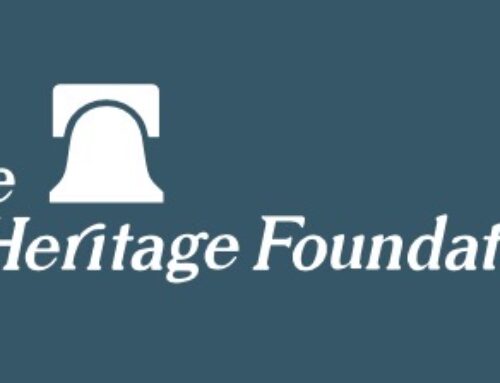By Katrina Trinko
The Daily Signal
(August 31, 2017)
Once you know the facts, the latest narrative painting President Donald Trump’s Election Integrity Advisory Commission as a shady group refusing to make its documents public falls apart.
Let me backtrack.
Here is the key section from a Washington Post article published Aug. 30:
“U.S. District Judge Colleen Kollar-Kotelly of Washington said the Election Integrity Commission released only an agenda and proposed bylaws before its first meeting at the White House complex last month.
“But once gathered, commissioners had thick binders that included documents the public had not seen, including a specially prepared report and a 381-page ‘database’ purporting to show 1,100 cases of voter fraud, both from the think tank Heritage Foundation.”
Ah, yes, those scary thick binders. (What is it with the left and binders? Maybe Mitt Romney could give me some insight.)
Well, as exciting as it would be if there were a top-secret Heritage Foundation voter fraud database … there isn’t one. You can peruse the entire public Heritage voter fraud database right here.
The existence of the 2-year-old database has hardly been a secret. In fact, we’ve run two Daily Signal articles just this summer that mention it: “Growing Pile of Data Shows That Voter Fraud Is a Real and Vast Problem” and “Voter Fraud Database Tops 1,000 Proven Cases.”
If we were trying to keep it a secret, we’d be doing a lousy job of it.
So, far from being “documents the public had not seen,” these are documents The Heritage Foundation and The Daily Signal—the multimedia news arm of the organization—have been pushing out to the public and encouraging wide readership of.
And no, the database isn’t “purporting to show,” as the Post put it, over 1,000 cases of voter fraud. It’s just, well, showing around 1,100 cases of clear voter fraud.
As the introduction to the database puts it, “The Heritage Foundation is providing a list of election fraud cases from across the country, broken down by state, where individuals were either convicted of vote fraud, or where a judge overturned the results of an election.”
And that “specially prepared report” also cited?
My Heritage Foundation colleague Hans von Spakovsky, who is a member of the Election Integrity Commission, thinks the Post might be referring “to a report that was provided to members of the commission by U.S. Election Assistance Commissioner Christy McCormick, not The Heritage Foundation.”
“’The Election Administration and Voting Survey – 2016 Comprehensive Report’ is an official report of the [Election Assistance Commission],” explains von Spakovsky. “It is also a report available to the public on the [Election Assistance Commission] website here. This report was filed by the [Election Integrity Commission] with Congress at the end of June, several weeks before the July 19 meeting of the commission.”
So yeah, that was also available to the public.
“If the judge or the reporters had spent 10 seconds on the internet doing a Google search, they could have easily found the hyperlinks to these documents that individual commissioners on their own brought to the commission to provide to their fellow commissioners,” says von Spakovsky.






